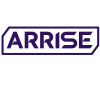Today, setting yourself apart from the crowd can be a difficult task, with factors like remote work giving businesses access to a global talent pool. By using recruitment marketing tactics, you will transform a patient waiting game into an active and engaged process.
But what exactly is recruitment marketing for job seekers?
It’s all about using marketing skills to sell yourself in your job search. When it comes to finding work, job seekers who understand and harness the power of recruitment marketing greatly increase their chances of standing out from the competition and getting noticed by recruiters. It’s all about taking charge of your career and letting employers know just how much you have to offer.
Once you perfect these techniques, you’re no longer searching for jobs; you’re pitching yourself as the employer’s solution.
Ready to discover how recruitment marketing can elevate your job search? Let's dive in.
What is Recruitment Marketing?

Recruitment marketing is a strategic approach that uses marketing techniques to sell your skills to employers—just like businesses do to attract customers to their products and services.
Fundamentally, recruitment marketing is about storytelling. Think about how companies use all manner of channels and tactics to tell the story of their offer as an employer—of workplace culture, values, and benefits—to create an employer brand and a pool of talent interested in working for them.
Similarly, rather than passively waiting for a job posting where you then send in your resume, recruitment marketing involves being proactive, putting yourself (and your resume!) out there before someone asks for it.
This proactive approach is enhanced by technologies such as AI in recruitment, which help tailor your visibility to the right employers through advanced data analytics and targeting techniques.
How does it work?
It's proactive: Job seekers actively seek out and engage with potential employers.
It’s ongoing: Rather than sending one-off applications, it’s about relationship-building with possible employers.
It's multi-channel: Companies don’t only recruit via the job boards anymore. They also use social media, content marketing, conventions, etc.
Key components of recruitment marketing
Understanding these components can help you navigate the modern job market more effectively:
Personal branding. It’s important to craft a compelling narrative about your professional skills, experiences, and values (more on this in a moment).
Target company research. Develop profiles of your ideal employers to tailor your applications, and make sure you really dive into the specifics of everywhere you consider.
Content creation. Spend time sharing valuable insights and showcasing your expertise in your field.
Social media engagement. Actively participating on platforms where potential employers and industry professionals interact can help build your reputation.
Network building. Attending events or talking online can lead to connections with current employees at target companies, providing insights - and potential referrals through a trusted referral platform.
Online presence optimization. Make sure you have an easily accessible, informative and up-to-date personal website or portfolio.
Acquaint yourself with these aspects, and you’ll be in a better position to gain an edge in the labor market and exploit the new opportunities that recruitment marketing creates.
Building Your Personal Brand

Your personal brand is your most valuable secret weapon—the unique set of abilities, qualifications, and attributes that set you apart from other candidates on the job market. Here’s how to create a powerful personal brand:
Defining your UVP
Known as your unique value proposition, or UVP, this is the starting point for your brand essence. To define yours:
Identify your strengths: What are you exceptionally good at?
Pinpoint your passions: What work gets you excited?
Recognize your achievements: What significant results have you delivered?
Understand market needs: What problems can you solve for employers?
Combine them and you will create a strong statement describing what you could add to a potential employer’s life.
Build a consistent online presence
Your online presence should reflect your UVP across all platforms, and should include:
Professional headshot: Use a high-quality, professional photo across all your profiles.
Bio/About section: Craft a compelling narrative that showcases your UVP.
Work samples: Share examples of your best work if possible. If not, use employer testimonials (for instance, if you've done translation work that's under an NDA, you can't share it, but you could share a testimonial from the client).
Recommendations: Gather endorsements from colleagues and supervisors.
Leveraging social media platforms

Different social media platforms serve different purposes in building your personal brand:
LinkedIn: Your HQ for work, networking, and relevant conversations.
X (formerly Twitter): Fantastic for sharing quick thoughts and participating in industry conversations. Follow thought leaders and contribute to trending topics.
GitHub: For tech professionals, showcase your coding projects and contribute to open-source initiatives.
Medium or personal blog: Demonstrate your expertise by writing in-depth articles about your field.
Instagram: For creatives and visual professionals, showcase your portfolio and behind-the-scenes work processes.
Behance or Dribbble: If you’re a designer who wants to post projects and exchange ideas with other creatives, this is for you.
Industry-specific forums (e.g. Stack Overflow for developers, Houzz for architects): Create an account and participate in discussions about your field.
YouTube or TikTok: Preferred by video creators or those in professions that benefit from visual demonstrations.
It’s not a question of ‘being everywhere’ but of being where your target employers are and adding value in that space.
Crafting an Effective Digital Resume

Your resume will need to impress both recruiters and automated systems. Here’s how to write a resume for the digital age.
Optimizing your resume for applicant tracking systems
With applicant tracking systems (ATS) commonplace, many companies automate the hiring process. To maximize your chances of clearing digital gatekeepers:
Use standard resume sections (e.g., "Work Experience," "Education").
Stick to common fonts like Arial or Calibri.
Avoid complex formatting, tables, or graphics.
Save your resume in a compatible format (usually .docx or .pdf).
Think of resumes as lead magnet examples for professional careers. Just as a lead magnet attracts potential customers, your optimized resume should attract potential employers.
Incorporating keywords and industry-specific language
To align your resume with job descriptions:
Review job postings in your field and note recurring terms.
Include relevant industry jargon and acronyms.
If applying internationally, research country-specific resume norms and business practices:
Understand local language preferences and potentially create versions in different languages.
Be aware of cultural differences in resume formatting and content expectations.
Research the business etiquette and workplace culture of the country you're applying to.
Remember, while keywords are important, your resume should still read naturally to human recruiters.
Showcasing achievements and metrics
Employers want to see the impact you've made. To highlight your accomplishments:
Use action verbs to start each bullet point
Quantify your achievements whenever possible
Focus on results rather than just listing responsibilities
For example, instead of "Responsible for sales strategy," try "Developed go to market strategy template that increased quarterly sales by 25%."
When you follow these best practices, you don’t just check off an experience on your resume; you sell your professional narrative to prospective employers.
Content Creation and Thought Leadership
Establishing yourself as a thought leader can significantly boost your career prospects. Creating great content can make you a thought leader and a valuable asset to any company.
Starting a professional blog or portfolio

Your professional blog or portfolio is your way of publicly promoting yourself—showcasing your ideas and successes. Utilizing tools like a desktop time tracker to manage your productivity as you create content can further enhance your efficiency and output. To get started:
Choose a platform that suits your needs (such as WordPress, Medium, or LinkedIn Articles).
Develop a consistent posting schedule.
Focus on topics relevant to your industry and career goals.
Include a mix of written content, infographics, and videos if applicable.
Quality, of course, wins over quantity any day: you’re better off publishing well-researched, well-conceived pieces infrequently than regularly publishing mediocre ones.
Sharing industry insights and experiences
You can’t become a thought leader overnight; you need to work your way up. Here’s how:
Stay up-to-date with industry trends and news.
Share thought-provoking points of view on current developments in your field – eg, B2B marketing best practices, if you’re in the marketing business.
Share case studies or lessons learned from your professional experiences.
Analyze new technologies or methodologies relevant to your industry.
Engage with other people in your industry - helping others, or contributing to existing conversations can build your presence too!
Try to strike a balance between the informative and the entertaining: make your points in clear, succinct language, and use data or real-world examples when you can.
Ideally, you should also try to include your own experiences in your content. If you spearheaded the implementation of master scheduler software that had great results, write about it and describe what worked and what didn’t to provide actionable insights.
Through the process of consistently publishing valuable content, you’re building your personal brand, but you’re also contributing to an industry’s body of knowledge, putting yourself firmly in the job market’s sights as a productive resource of valuable skills.
Understanding Employer Branding
There's simply applying for any job and then there's finding the right one. When you grasp the concept of employer branding, you can sift through the selection of roles out there, and actually make informed decisions about where you apply to join, and ultimately should join.
Researching potential employers

Before applying to a company:
Visit their website and social media profiles.
Read employee reviews on platforms like Glassdoor.
Look for news articles or press releases about the company.
Check if they've won any awards for their workplace culture.
Track the sentiments of the company’s current and past employees on social media.
This research helps you gauge their reputation and work environment, making sure it’s right for you.
Aligning your values with company cultures
One of the key factors affecting job satisfaction is the company culture. To land an employer with a good company culture:
Identify your core values and what matters most to you in a workplace.
Look for companies that explicitly state values that align with yours.
Pay attention to how companies describe their work environment and team dynamics.
Consider reaching out to current employees for insider perspectives.
You can find greater satisfaction in your job and achieve more professional growth where there is a better match between your values and the culture of the organization.
Identifying opportunities that match your career goals
To find roles that align with your long-term aspirations:
Clearly define your career goals and the skills you want to develop.
Research companies that offer growth opportunities in your desired field.
Look for organizations that invest in employee development and training.
Consider the company's industry position and future outlook.
Armed with this understanding of employer branding, you can steer your decision-making, knowing which firms spend substantial sums to cultivate their talent pool and which avoid investing in their employees after they’ve signed the contract.
This insight will help you target your job search to the employers best suited for your skills, values, and growth while increasing the chances of fitting in at an organization that cares enough to prioritize such efforts.
Leveraging Job Search Platforms and Tools
Once you’ve got your own brand down, it’s time to ensure you know how to use job search platforms and tools effectively.
Many job boards offer you a chance to narrow down your search with more than simply keywords. You can use the advanced search feature of many such sites to narrow down options by area, salary, experience, and other factors.
Set job alerts and notifications for roles matching your dream employer and allow job opportunities to come to you, saving precious time.
Don't limit yourself to general job boards either. Instead, search for niche job sites that specialize in your area. Not only might you find more targeted postings on these sites, you’ll be able to connect with employers who are searching for your specific skills.
For example, Europe Language Jobs is a niche job board focused on job offers with different languages across Europe. So if you speak more than one language and would like to find a job abroad, that's where you should start your job search.
Additionally, don’t give up just because your ideal employer isn’t currently interested in your skill set. Sell yourself effectively, and they might add you to their candidate management system, giving you a prime chance at future opportunities.
Networking in the Digital Age
How effectively you can network can be the difference between unemployment and the perfect role. Digital platforms are completely revolutionizing how we network, who we connect with, and, in turn, how we find our next job.
Utilizing LinkedIn and other professional networks

LinkedIn is the website for serious professional networking. To use it to its full potential:
Optimize your profile with a compelling headline and summary.
Regularly share industry insights and engage with others' content.
Join relevant groups and participate in discussions.
Use LinkedIn's advanced search to find and connect with professionals in your target companies.
LinkedIn is important, but don’t think that’s the only game in town – use other networks such as GitHub (for developers) and Behance (for creatives); even Facebook can showcase your work and link up with fellow creatives.
Engaging with industry professionals and thought leaders
Building relationships with industry leaders can provide valuable insights and potential job leads.
Follow thought leaders in your field and thoughtfully comment on their posts.
Attend virtual events, webinars, and conferences to expand your network.
Get in touch with people for informational interviews to learn something about a company or position.
Real engagement is about quality over quantity and demonstrating careful thought over indiscriminate noise.
Participating in online forums and discussions
You can show your knowledge and learn something new at the same time if you stay on top of online bulletin boards and discussion groups.
Seek out industry-specific forums or subreddits related to your field.
For example, if you’re interviewing at a SaaS company, demonstrate your knowledge of the industry tools (such as how a sales enablement platform can help a salesperson close more deals) to show your depth of knowledge.
Share your experiences to showcase your practical knowledge.
Using these digital networking tools strategically will help you build a strong professional network to facilitate your career development and open new doors.
Conclusion
Through recruitment marketing, you can present yourself to employers in different ways. Arm yourself with a unique brand identity, an effective digital resume, networking skills, and key job search tools to get your dream job.
In today’s job market, being a passive candidate won’t help you rise above the rest.
But an active, marketing-oriented approach can. Practice these tactics regularly, and you’ll be ready to seize the great career opportunities that come your way.













Doris Pop1mo ago
this was a useful article to read while on coffee break
this was a useful article to read while on coffee break